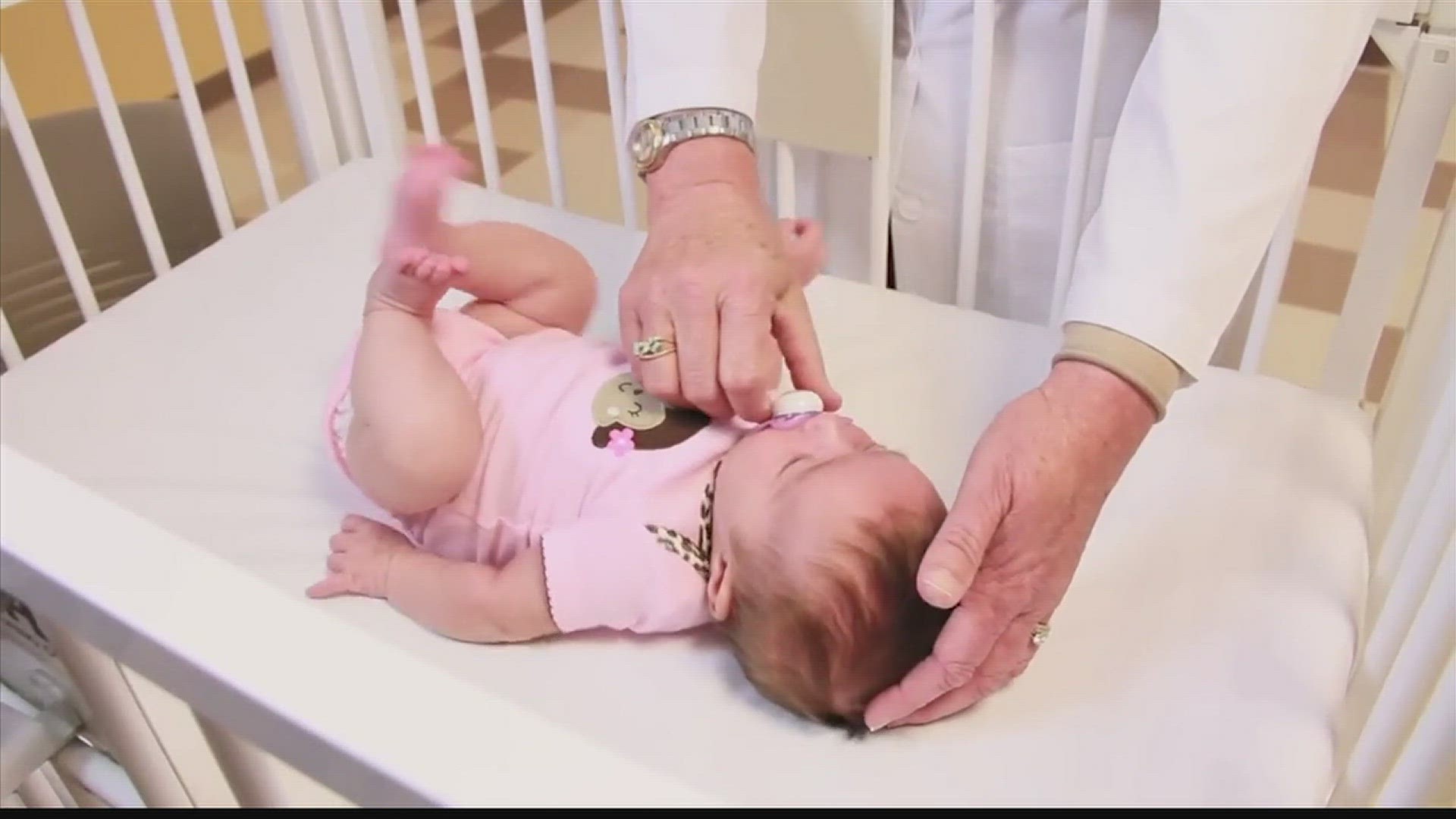HUNTSVILLE, Ala. — The Alabama Department of Public Health (ADPH) wants you to help combat infant mortality by joining the #ClearTheCrib #SafeSleepAL challenge. Sleep-related infant deaths are still a major problem in Alabama. Of the 443 babies that tragically died in 2021, 101 are counted as Sudden Unexpected Infant Deaths (SUIDs). SUIDs include deaths with the following causes listed on the death certificate: sudden infant death syndrome (SIDS), accidental suffocation or strangulation in bed, and undetermined.
What is SIDS?
Sudden infant death syndrome is the sudden death of a baby younger than 1 year of age that does not have a known cause, even after a full investigation. “There’s been a shift away from talking about SIDS and instead talking about Sudden Unexpected Infant Death (SUID),” explains State Perinatal Division Director, Carolyn Miller. Many of the deaths classified as undetermined occur in an unsafe sleep environment even though they are not documented as SIDS. Creating a safe sleep environment for infants could significantly decrease the prevalence of sleep-related infant deaths.
In 2020, 404 babies tragically died before their first birthday. Of those deaths, 61 were officially ruled sleep-related with the cause of death listed as either “sudden infant death syndrome” (SIDS) or “accidental suffocation or strangulation in bed.” An additional 41 deaths were listed as “undetermined,” although many of those deaths occurred while the baby was sleeping.
Some of these deaths are preventable. There are risk factors that caregivers can control to lower their baby's risk of dying while sleeping.
How you can get involved.
October is SIDS Awareness Month, and ADPH continues to promote the ABCs of safe sleep—Alone, on their Back, in a Crib.
- ADPH, along with the American Academy of Pediatrics (AAP), recommends that the baby should sleep in the same room as the parents, but not in the same bed (room-sharing without bed-sharing).
- Unless otherwise instructed by a pediatrician, an infant should always sleep on its back, on a firm, flat surface.
- An infant sleeping on its side or stomach faces an increased risk of Sudden Unexplained Infant Death (SUID).
- Infants should sleep without the aid of wedges and cushions.
- Railings should be no more than 2 3/8 inches apart - tight enough that a soda can not fit through them.
- The mattress should be firm, flat, and covered with a tight, fitted sheet.
- Keep your baby's crib clutter-free - no blankets, pillows, bumper pads, stuffed animals, etc.
- Waterbeds, futons, recliners, and sofas are not acceptable substitutes for a crib.
To help highlight and clarify what a safe, clear crib environment looks like, ADPH is promoting the National Institute of Health’s Safe to Sleep® #ClearTheCrib challenge. This social media challenge is a fun and engaging way to highlight the importance of a clear crib to reduce the risk of suffocation and other SUIDs. All pillows, loose blankets, bumper pads, stuffed animals and even baby hats should be removed from a crib for a baby to sleep safely. To successfully “Clear the Crib,” participants need to remove all unsafe items from a cluttered crib and ensure that the doll representing the baby is safely positioned. This is a timed challenge.
“The intention is to have fun while spreading the word on keeping babies safe,” explains Miller. Infants statewide need you to help spread awareness by joining in on the #ClearTheCrib #SafeSleepAL challenge. ADPH invites you to be creative and use your platforms to educate communities about safe sleep for infants. Make sure to include the tags #ClearTheCrib and #SafeSleepAL.
Are you ready to prevent infant mortality in your community? For more information, visit https://www.alabamapublichealth.gov/perinatal/safe-sleep.html
If you cannot afford a safe place for your infant to sleep, visit https://www.alabamapublichealth.gov/perinatal/safe-sleep.html

